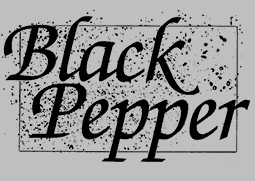|
|
Adrienne Eberhard
|
||||
Book Description
a glimpse of satin shoes
paler than pearl shell
softer than the skin
at a lover’s wrist
think
of a woman’s body
all the pinks
that glow
and suffuse
a palette of rouge
the hues
of dawn and sunset
of ardent and replete
Adrienne Eberhard’s new collection Chasing Marie Antoinette all Over Paris forges connections between past and present, public and private, and human and non-human, exploring what it means to be truly at home in the world, whether her beloved Tasmania, France or Indonesia. Ranging in subject matter from native grasses, ducklings and footy games, to cave paintings, family and 9000 years-deep ancestry, she draws on personal, as well as cultural, history to investigate possibility, love and loss. With their focus on the small and the precious, these poems draw our attention to what is often overlooked, enabling us to see the extraordinary in the ordinary.
She demonstrates how well she can move from sensual evocation of place to tenderness and love of the human. This is a book whose language, because of its precision and sensuality, does justice to a wide range of experiences. Eberhard’s poems seem expounded wholly from both body and spirit.
Judith Beveridge, Westerly
ISBN 9780648038757
2020
110 pgs
$24.00 Australia
|
Distance Mt Field, Tasmania (after Jordie Albiston’s ‘Cartography’) What is the space between this hut and that mountain but impenetrable black, and frosty cold? She is writing this at a table in the cabin, spinning thoughts like threads, as if they can hold her boys tighter, pull the mountain in, with their bold tents blooming like flowers in the snow. Can thoughts, or mad desire, shift the world slightly, tilt ranges so their faces lower to her own? Upthrust, tectonic forces, the whole slew of geology sped up, so contour lines diminish and lakes freeze, ice thickening to a deep blue while those dark mountain peaks relinquish distance; and this long night will finish. Her writing is a thread to lure them back, their faces filled with snow light, dolerite, the itch of time alone, cold breath of height. Face facts: the contours between here and there are shifting. Pack, and ask, what is the space between home and out there, between their beginnings and these beginnings, but a lack of courage; what is distance but a prayer? Fledglings Three balls of dusky wool peep in outrage for renegade parents, lost but not alone; closely knit as a fair isle pattern, regrouping at every ten uncertain steps, linking, huddling, calling. In the box you pile high, a mound of freshly laundered socks or a downy bundle of pick-up sticks, burying yourselves in each other, necks entwined, links on a chain, abandoning yourselves to dreams of your lost mother. You lie together, a swell of winter muffs or crocheted shawls, flaring newly formed feathers like flamenco dancers, ruffling, dislodging, soft down falling like rain. In morning sun you preen and poke, baring a froth of petticoats, your wings quilled with turquoise as you settle on stones, extending your legs in a cat-like stretch, tucking leather joints to doze, nod, trill. Ever restless, you pad on prehensile feet, foraging for green pick with greedy beaks and I call you, peep, peep, peep, then, duck, duck, duck, and finally, boys, boys, boys, your maturation a mirror of my other trio: tender cossetting, wriggling bodies seeking the warmest spot, explosive growth, faces tilting at the sky, angled necks and folded legs. I’m ahead of myself watching you: heady with hormones and the lure of blue, as you whir budding wings on webbed tiptoe. Your breasts are spotty as a dalmatian’s but strong with the shape of an adult bird; your lost mother recedes as you loll in the sun, separate, discreet, while I juggle this unwieldy knowledge. Smile There’s something comical about flounder: the way their noses curl and their eyes stare upwards, close together like badly separated seedlings. They are sand flowers, sea-bed huggers, skins dappled with sun-flecks and freckled with rain. When you lift the baby flounder from the sea floor, your grin bigger than its girth, the lost months disappear: this day bound only by laughter. |
|
REVIEWS
REVIEW by Geoff Page
March 6 2021 - 12:00AM
by Adrienne Eberhard.
Black
Pepper,
$24.
Adrienne Eberhard's fifth collection, Chasing Marie Antoinette All Over Paris, is a convenient reminder of what a strong tradition of female poetry Tasmania has had over the years.
tiny shoes with pearl buttons
and a heel
that tapped
authoritatively
on the marble floor
there were lilies /
spilling like footsteps
silken
each one
a stab of paint
a fall
and you
nowhere to be seen.
Part III is also
remarkable for that relative rarity, a high-quality, explicitly-religious
contemporary poem, In "Christmas Eve" the poet appears to be
watching her husband, at a Parisian Christmas mass, accept:
the compression of centuries,
and in the lifting voices spilling
with the organ's swelling magnitude,
he is caught, pinned like a butterfly,
his blue eyes catching mine
as he swallows.
For this reader, the
emotional core of the book is in the opening sequence of its final section
which, from a series of photographs, evokes the life and marriage of her
Dutch grandfather and his Dutch-Indies wife.
out in him, into the sharp angles of shirt,
collar, pocket, the only concession
the buttonhole spray with its tiny
white pods that could be
embroidery on a lace veil.



